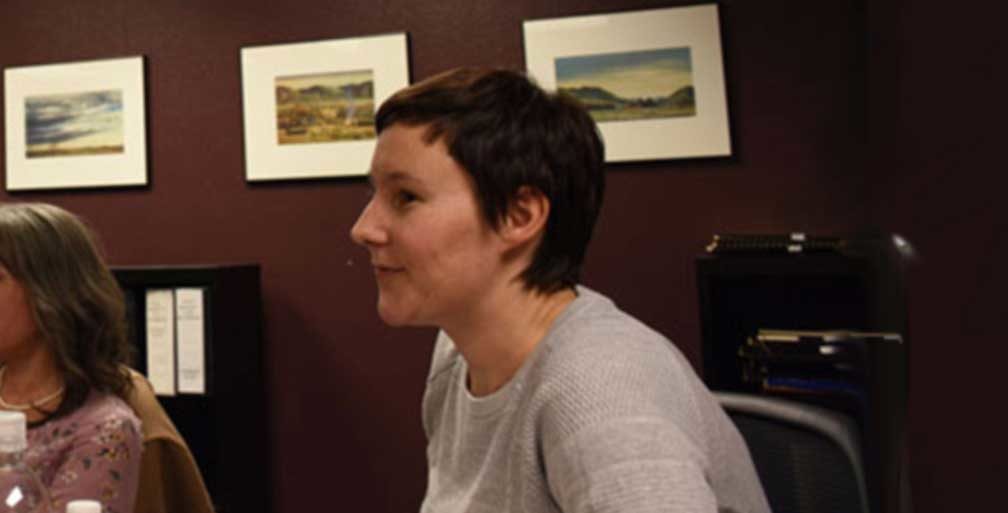The Co-Op Capital Program is taking the behavioral sciences into account with the support of the Behavioural Insights Team, Bloomberg Philanthropies and What Works Cities.
“Like Spock, we think we are logical and we make decisions from our brains, but there are conscious and subconscious things that influence our behavior. That’s where behavioral economics comes in.”Elspeth Kirkman, Senior Vice President, North America, Behavioural Insights Team.
This year, Albuquerque’s Integration Initiative has been lucky to work on honing the Co-op Capital program to best serve its intent with the Behavioural Insights Team (BIT), a social purpose company based out of the UK with offices across the world. As of now, the Co-op Capital program has loaned over $485,000 to over 230 entrepreneurs. The program is breaking down barriers to capital for low-income entrepreneurs and offering capital in new and more inclusive ways. And that work to understand and overcome barriers to capital has evolved in the early part of this year with the support of BIT, Bloomberg Philanthropies and What Works Cities.
BIT’s work draws on ideas from the behavioral sciences to improve the outcomes of public services and programs by introducing a more realistic model of human behavior to policy making and program development. Unlike Spock, the Star Trek character known for his almost impenetrable allegiance to reason, people have emotional and subconscious responses that shape their actions. Programs and policies built in the interest of supporting them may be reasonable and precise, but that doesn’t ensure participation. This is where BIT helps to bridge gaps.
Their involvement with the Co-op Capital program has already resulted in some key insights. “We have been lucky to work with BIT as consultants,” said Robin Brulé, Chief Strategist for Albuquerque Living Cities Integration Initiative. “They’ve helped us understand another range of barriers and challenges faced by the community organizations that administer Co-op Capital and by loan recipients. We want to increase the uptake of the program and decrease stress for borrowers, and with that goal in mind the introduction of the behavioral sciences is key.”
The Challenge With Capital:
There are some relatively straightforward barriers to capital. Entrepreneurs that have no collateral, no credit or bad credit, or lack support of alternative financing like family members, face barriers in securing capital to start or expand their businesses. If they are approved for a loan, they often face high interest rates or heavy penalties that further jeopardize their ability to start and grow a business.
In addition to these barriers, there are a few key behavioral influences to consider that BIT highlighted in their initial report:
1) Address belonging uncertainty
“Research shows that people’s behavior and motivation can strongly be affected when they do not feel they belong or are in situations where their identities may be negatively stereotyped…Interventions that address this belonging uncertainty have been shown to be particularly effective.”
2) Get people information before a crisis
“Research has found that people under budgeting stress focus heavily on the demands at hand and may have fewer mental resources to explore other, unfamiliar options. The more financially stressed someone in need is, the less likely they may be to jump…”
3) Speak through the right messenger
“In some cases, the messenger can matter as much as the message itself.”
While these insights directly address Co-op Capital, their application can extend to much of the work being done through Albuquerque Living Cities Integration Initiative as well as the work of partner organizations.
Learn more about the Co-op Capital program here.






